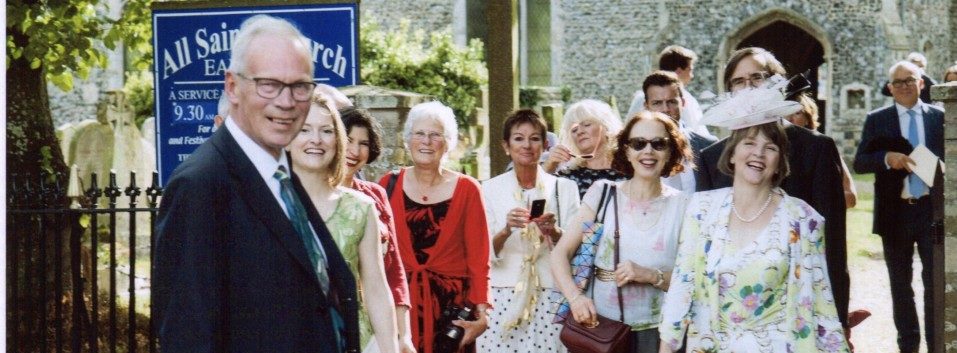If you want to catch up, go to Search This Blog and put in family story, and you will find parts 1-5.
I left my father going to Weymouth in 1946. There, he would meet and marry my mother. So it seems a good point to stop and start again with the other side of my family.
I have already said, right at the beginning, how little I know about my maternal grandmother, Janet. So this is about my grandfather, David. I don’t know much, but at least I knew him, which is more than I can claim for any of my other grandparents.
He was born on Trafalgar Day, so his first name was Nelson, although it was never used. He had two brothers, and they all joined the army soon after the outbreak of the Great War in 1914. His two brothers were strapping lads, topping 6 foot, but young David was only 5 foot 5. He was a superb horseman, however, and specialised in stunts, such as galloping, lance in hand, and picking up a small quoit on the end of the lance. And leaning from his horse, again at full gallop, to pick up a lady’s handkerchief from where it lay on the ground. He paid for this agility in later years with acute arthritis in one hip. By the time hip replacement operations came in, it was too late for him and he walked with a pronounced limp, in spite of a built-up shoe, and was in constant pain.
He spent all the war years in Europe, in the trenches. He survived the war. His two tall brothers did not, mown down as so many were of that generation.
A few years ago, the details of those killed was put up on the internet, and my sister looked up our great-uncles. She discovered that they had not been killed outright, but that one had survived to be brought back to England and the other, too gravely injured to be moved had, nevertheless, been visited by his mother, who was with him when he died. To watch two sons die is beyond the imagination of any mother, but she was not alone and, somehow, she survived.
David and Janet were second cousins. In the way that things were done in those days, they courted for several years before they were married. Their first and only surviving child was born on Remembrance Day, 1923. In 1925, Janet died. Putting two and two together, I believe that she died of septicaemia, following a miscarriage. My mother was only eighteen months old at the time and, as her father was not able to look after her by himself, she went to live with her grandparents.
David’s mother and Janet’s father had both been widowed and, having known each other as cousins all their lives, it was a friendly and practical arrangement for her to go and live in his house and help to run it. It was not thought scandalous or immoral, nor was it. They were both over seventy (Janet was the ninth of ten children, born when her mother was well into her forties) and it was an acceptable arrangement to the society of the day.
My mother lived there for more than five years. They were the happiest of her childhood. It was an ideal home for a small motherless child, calm and loving, and she idolised and idealised her grandparents for her whole life. Her grandfather was a retired farmer, called John Farmer – try to get more English than that! – and they lived in what was then a small town (now much larger) in North Wiltshire.

I seem to have moved in here! Next I’ll be claiming squatters rights…ha ha ha…
I have been so moved and intrigued by your history that it has prompted me to talk to my Mom about our family…all sorts of fascinating things coming out..and she loves talking about it.
I wish I could go home for a bit and talk to my Gran before she dies…but anyway she is senile so would not really make any sense at all….
Anyway I will be blogging some of it too at some point.
I once had a friend called Jane Farmer…I’d forgotten that until I read your post.
I think if my boys were killed it would be the end of me. I’d give up.
*Shifts over on the sofa and opens another bottle* Plenty of room, you’re welcome!
wendz – hello – do ask your Gran, because she may remember long ago quite well, even if she doesn’t know what’s going on today, and you will never be able to ask after she’s gone.
z – please excuse me; always interested in family histories, wish I’d asked my grandparents about themselves and their brothers and sisters.
Pass the wine please – too comfortable here to move my botty.
Oh..would you like an olive?
mm, here it is – *stretch* – sorry, half of it seems to have been poured already. Mm, nice olives. You didn’t really mean just one, did you?